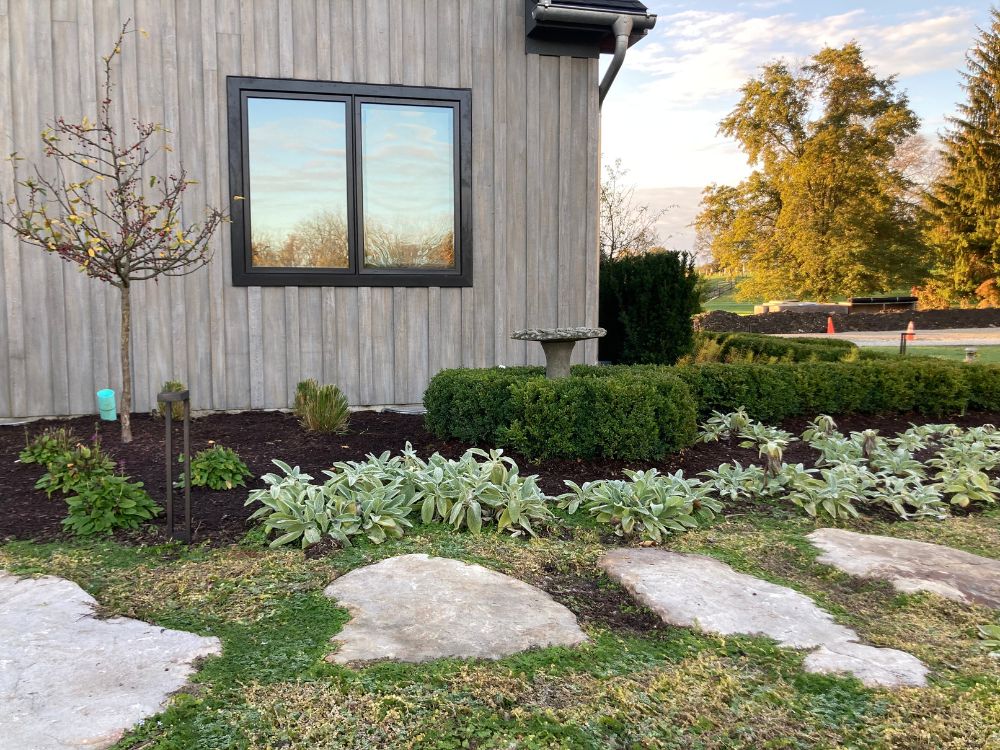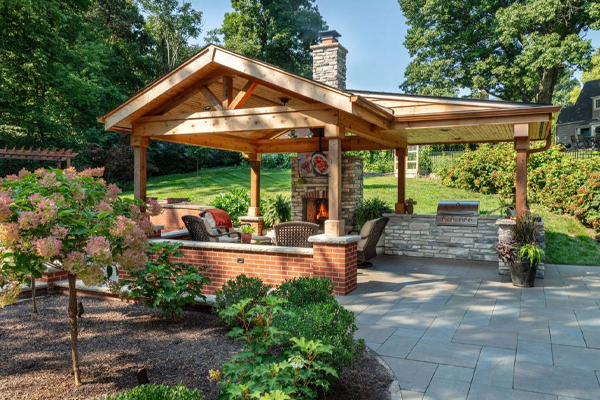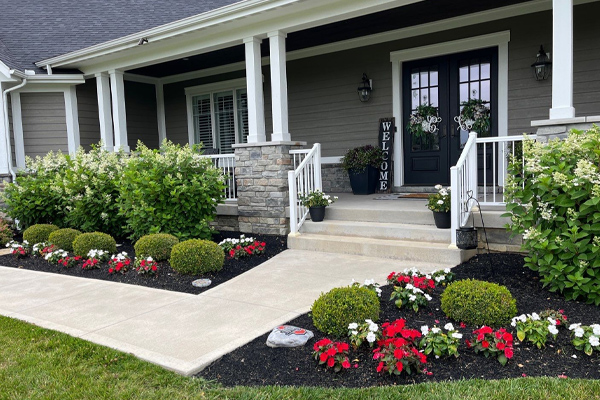Looking Great: Design Front Yard Landscape to Add Curb Appeal
The process of a front yard landscaping design allows you to create a welcoming entrance, enhance your property’s value and even improve environmental quality. This exciting new home development will encourage your outdoor space to look its best year-round, no matter the season.
Keep these considerations in mind as you work with a landscape designer:
- First impressions: The front yard is the first thing visitors see, making it one of the most important aspects of your home’s overall look. A well-designed landscape creates a positive impression and sets the tone for the entire property.
- Property value: Effective landscaping can increase a home’s value by as much as 15 percent. It’s a significant investment that pays off, especially when selling a property.
- Functionality: A good design considers pathways, lighting and greenery, all of which come together to create a harmonious and beautiful landscape.
- Environmental benefits: Proper landscaping can reduce energy costs by providing shade and improving air quality.
Elements of an Effective Landscape Design
Choosing the Right Plants and Materials
Practical Tips for a Low-Maintenance Yard
Budgeting for Front Yard Landscaping
Inspirational Case Studies
Future Trends in Front Yard Landscaping
Elements of an Effective Landscape Design
Creating the front yard landscape of your dreams requires careful planning, so each element comes together to create a balanced final product.
Pathways and Walkways
Pathways are essential for easily guiding visitors to your front door and throughout your landscape. Consider materials like paver or bricks, which can provide durability and add unique textures and looks to your space.
A few design tips to follow include:
- Using curves to create a more natural and inviting look.
- Ensuring pathways are wide enough for comfortable walking.
- Adding lighting along paths for safety, ambiance and enhancement of your property’s best features.
Plants and Greenery
Plants are the cornerstone of any landscaping project. The key is to choose varieties that suit your climate and give your space the right look.
When it comes to plant selection, your experienced designer will:
- Use a mix of perennials and annuals for year-round color.
- Incorporate evergreens for structure and year-round plant health.
- Choose plants native to Ohio to support local wildlife and reduce excessive maintenance.
Lighting
Lighting enhances both the safety and beauty of your front yard. It highlights architectural features, illuminates pathways and creates a peaceful and ambient atmosphere.
Lighting ideas for front yard landscape design include:
- Using lights to accentuate trees and plants.
- Installing path lights to safely guide visitors along walkways.
- Considering solar-powered lights for a sustainable option.
Hardscaping
Hardscaping structures like patios and pergolas can add form and function to your yard, providing areas for seating and decoration.
Hardscaping materials suitable for front yard landscaping include:
- Stone or brick for a classic look that is ideal for traditional homes.
- Concrete for a more modern aesthetic, which can enhance sleek and sophisticated homes.
- Wood for a natural, rustic appeal that goes well with ranch or modern farmhouse style homes.
Water Features
A water feature can serve as a focal point, adding sound and movement to the landscape. Options include fountains, small ponds and waterfalls.
To design a front yard water feature, remember to:
- Choose a feature that fits the scale of your yard: too big, and it can take away from the unique beauty of the rest of your property.
- Ensure it’s easy to maintain. Your landscape designer will help you choose the best options.
- Consider placement for maximum visual and auditory impact.
Choosing the Right Plants and Materials
Climate and Soil Considerations
We understand our local climate and soil conditions so we can choose plants that thrive. Taking these factors into account means your plants will stay healthier and require less maintenance.
Plant Selection
The right mix of plants can create a dynamic and visually appealing landscape.
Consider using a variety of plant types:
- Perennials: Long-lived plants that provide structure and continuity.
- Annuals: Short-lived plants that offer vibrant seasonal color.
- Shrubs and Trees: Provide height, shade, and structure to the yard.
Material Choices
Materials for pathways and other hardscape elements should complement your home’s style and be strong enough to withstand the elements.
- Pavers and stones are durable and available in various styles.
- Mulch helps retain moisture, prevent weeds and add a finished look to plants and greenery.
- Gravel is ideal for low-traffic areas and drainage.
Practical Tips for a Low-Maintenance Yard
A beautiful yard shouldn’t require endless upkeep, and your busy schedule shouldn’t be interrupted in order to keep your landscaping looking its best. Here are some strategies for creating a low-maintenance front yard landscape:
Use Native Plants
Native plants are adapted to local conditions, requiring less water and care than non-native species.
Opt for Drought-Tolerant Varieties
Choose plants that can withstand dry conditions, especially if you live in an area with water restrictions.
Incorporate Mulch
Mulching helps retain soil moisture, suppress weeds and reduce the need for daily watering.
Install Irrigation Systems
Automated irrigation systems ensure your plants get the right amount of water without manual effort. Consider drip irrigation for efficient water use.
Minimize Lawn Areas
Lawns require significant maintenance. If you want to keep maintenance to a minimum, you might consider reducing the size of your lawn or replacing it with ground cover.
Budgeting for Front Yard Landscaping
Landscaping can be a significant investment, but careful planning can help manage costs effectively. Here are steps to follow in the budgeting process.
1. Set a Budget
Determine how much you’re willing to spend on your landscaping project. Consider factors like plants, materials, labor and ongoing maintenance.
2. Prioritize Projects
Start with essential elements like pathways and basic plantings. Add decorative features and additional plants as your budget allows. You can also decide to tackle your project in phases over several years.
3. Choose to DIY or Get Professional Help
Decide what tasks you can handle yourself and when to hire professionals. DIY can save money, but complex projects may require expert assistance.
Inspirational Case Studies
1. The Modern Minimalist
A simple design featuring clean lines, drought-tolerant plants and minimal hardscaping. This approach highlights the home’s architecture and provides a sleek, contemporary look.
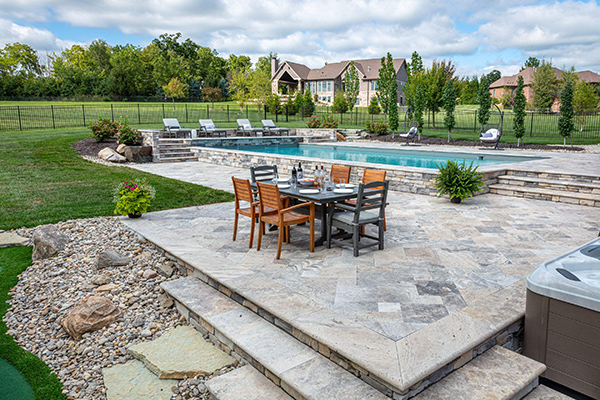
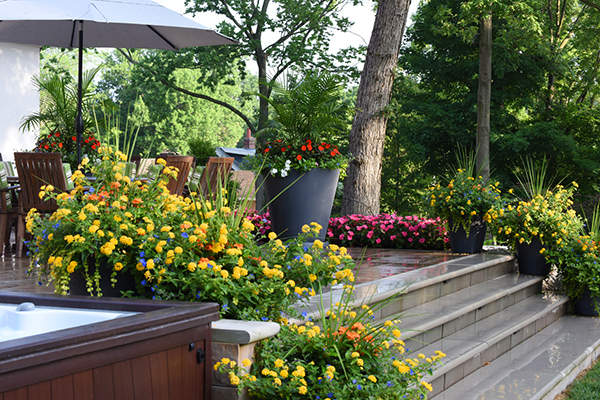
2. The Cottage Garden
A lush, colorful garden with a variety of flowers, shrubs and a charming pathway. This style creates a welcoming, cozy atmosphere with plenty of visual interest.
3. The Classic Elegance
A traditional design with neatly trimmed hedges, symmetrical plantings and a formal pathway. This style exudes sophistication and timeless appeal.
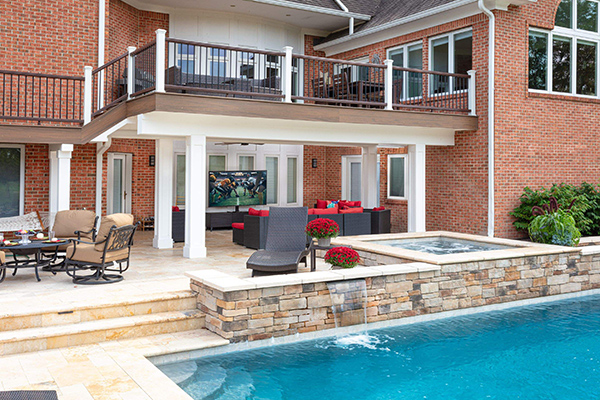
Future Trends in Front Yard Landscaping
Stay ahead of the curve by incorporating the latest trends in front yard landscaping:
1. Sustainable Practices
Focus on eco-friendly designs that use native plants, reduce water usage and minimize chemical inputs.
2. Smart Technology
Integrate smart irrigation systems, automated lighting and other tech solutions to enhance convenience and efficiency.
3. Edible Landscapes
Combine aesthetics with functionality by including edible plants like herbs, vegetables and fruit trees in your landscape design.
Ready to Beautify and Design Front Yard Landscape?
Now that you know more about the process of landscape design, the key considerations and essential elements, it’s time to begin your project. The Site Group designers and installers are eager to meet you and hear about your vision.
Are you ready to transform your front yard? Contact us to get an idea of where to begin your journey!
The 7 Steps to Landscape Design and Installation
Landscape design visually transforms outdoor spaces and helps properties stay beautiful year-round. Here are 7 steps to landscape design.
Design Front Yard Landscape for Curb Appeal
Expert knowledge is needed to design front yard landscape and enhance curb appeal. Create a welcoming entrance and enhance property value.

